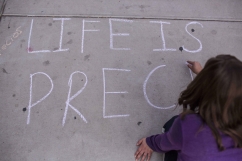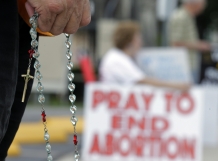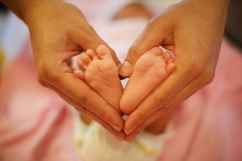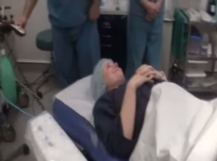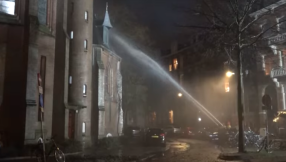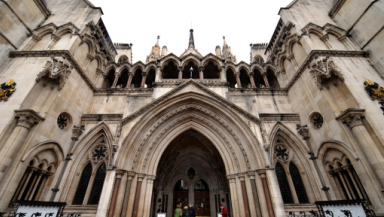
The High Court in London has today supported the current position that women from Northern Ireland are not allowed to receive free abortions from the NHS in England.
The case follows a claim by a girl and her mother, known only as 'A' and 'B' who have brought the case against the Secretary of State for Health, Jeremy Hunt.
They have challenged the current system, where Northern Irish woman seeking terminations in other parts of the UK must pay for their transport, accommodation, and the termination procedure.
Claimant A was a minor when she was seeking an abortion in October 2012, and had to travel to England with her mother, claimant B, which caused them some financial difficulty.
Their case is based on the argument that it is irrational to provide the service to some parts of the UK, but not others, that their rights to private and family lives have been violated, and that they are being discriminated against because of their place of residence.
Northern Ireland is the only part of the UK where abortion is effectively illegal, only being permitted in exceptionally rare circumstances. Northern Irish abortion policies are based on legislation from 1861.
The only circumstances in which an abortion is permitted in Northern Ireland is to save a woman's life, or if there is a risk of permanent and serious injury to her physical or mental health.
The rest of the UK is subject to the 1967 Abortion Act, which permits abortion up to 24 weeks into a pregnancy, provided two doctors agree that continuation of the pregnancy would damage a woman's mental or physical health, or that the child is suffering abnormalities that could cause severe disabilities.
The strictness of the Northern Irish system compared to the mainland British rules is self-evident in the statistics. In Northern Ireland, there were 51 abortions performed by local hospitals in 2013. In England and Wales in 2012, there were more than 185,000.
In his ruling, which was quoted in the Belfast Telegraph, Mr Justice King said that the legal differences in the cases had "not surprisingly led to a steady stream" of women heading to other parts of the UK seeking terminations.
It is estimated that in 2011, 1,000 women travelled from Northern Ireland to other parts of the UK seeking terminations.
Mr King took the view that NHS England only possesses "a duty in relation to the physical and mental health of the people of England" and that this duty did not extend "to persons who are ordinarily resident in Northern Ireland".
Angela Jackman, a partner at the law firm Maxwell Gillott representing 'A', said that she found the ruling "very disappointing".
"This is an important issue for thousands of women in Northern Ireland, and there have been recent calls in Parliament for changes in the law," Ms Jackman said.
"Why should women from Northern Ireland have to pay for this health service in England despite being UK citizens?"
"And what are women in Northern Ireland who need terminations supposed to do if they cannot afford to pay privately for the service in England?"
Bernadette Smith, founder and director of the Northern Irish Pro-Life Group Precious Life, welcomed the move and called today "a great day for democracy".
"It's good that the high court in London has recognised the right of the people of Northern Ireland to make laws on this issue.
"It sends a message to other courts in the UK, and at the EU level, that we don't want these laws, and that we can legislate on the issue of abortion here, which is not a human right."
"Our government represents a vast majority of people her who don't want this to happen, and don't want their taxpayers money spent on the destruction of unborn human life."
Discussions about the possibility of changing the system were raised in the House of Lords in October 2013. Labour's Baronness Thornton described the different laws resulting from devolution as an "unsatisfactory outcome for women in Northern Ireland".
However the Liberal Democrat Baroness Randerson said that changing the current system would represent "a major departure from the system of residence-based responsibility and the separation of powers between the health services in the four jurisdictions of the UK".
Baroness Randerson also said that the current model was an important part of the Northern Irish devolution agreement, and that any changes could damage the peace process: "This is a sensitive issue that the previous Labour Government, when they were putting in place the devolution settlement, believed should be left to the people of Northern Ireland to decide for themselves."
The claimants now plan to appeal the High Court's ruling.










